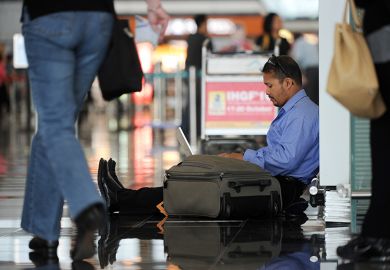New Zealand wants to extract gain without pain from its Covid-induced revamp of international education, with an education department wish list setting out the desired attributes of a proposed “high value” industry.
The new approach will deliver the country “a range of value benefits” with “minimal risks”, a discussion paper says. The risks to be “minimised” include low-quality courses, student exploitation, inappropriate recruitment practices and threats to student safety.
The new-look industry would avoid undermining the immigration system by treating study as a “a guaranteed path to residence”. It would curb international students’ impacts on locals’ access to housing, infrastructure and jobs.
And it would circumvent collateral damage on the domestic education system by ensuring that international education did not drive inequities, curtail teacher supply or foster over-reliance on foreign students’ fees.
Meanwhile, the revamped industry would deliver both immediate and longer-term economic value as well as broader cultural and soft power benefits.
The Ministry of Education discussion paper aims to flesh out the country’s aspiration, articulated in a 2018 strategy, to shift the focus of international education from revenue generation to quality provision and “higher value” markets.
Covid’s disruptive impact “provides an opportunity to accelerate the ‘high value’ strategic shift” and “embed this in the sector’s rebuild”, the government’s education reform website says.
But that requires an “agreed understanding” of the concept, the discussion paper points out. “We need to be clear about what ‘high value’ looks like. We need to consider where we will be offering incentives to protect and enhance areas of high value, and where we will pivot and develop new offerings.”
The paper defines high value markets as “specific segments within diversified priority source countries” but does not identify those countries. Nor does it identify threats to national security as a risk, despite perceptions that New Zealand is too closely aligned with China.
But target markets could include countries “where we are seeking to strengthen our bilateral relations”, the paper says. Countries willing to host New Zealand students could also be prioritised.
Desirable overseas students could include doctoral candidates in research priority areas and fields of strength like climate science and earthquake engineering, the paper adds. “Nuanced work rights” could help facilitate “student integration into our communities”.
The paper outlines immediate steps to help achieve the high value pivot. They include pursuing plans to bring in priority students while border restrictions remain, “scenario planning” to help pinpoint target markets as borders reopen, and “limited market expansion” in the meantime.
Priorities could be further refined following planned reviews of overseas students’ work rights and international enrolments in primary and intermediate schools, the paper says. New Zealanders have until 3 September to respond to the paper.
Separately, pastoral care requirements covering international students will be extended to their domestic peers in a new code of practice which will apply from next year.
The new code mandates compliance with a dispute resolution scheme which helps students settle financial and contractual disagreements with educational institutions. International students have had access to the scheme since 2016, with officials now extending it to their domestic peers.
Register to continue
Why register?
- Registration is free and only takes a moment
- Once registered, you can read 3 articles a month
- Sign up for our newsletter
Subscribe
Or subscribe for unlimited access to:
- Unlimited access to news, views, insights & reviews
- Digital editions
- Digital access to THE’s university and college rankings analysis
Already registered or a current subscriber? Login








